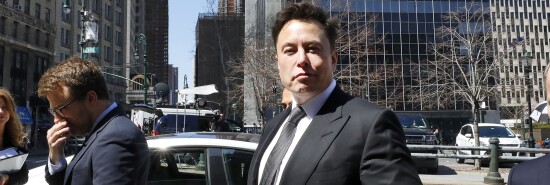
Journalists demanded censorship. Elon Musk gave it to them, and they hated it
Tiana Lowe
Video Embed
Journalists are apoplectic about a new rule under which Twitter can censor users.
I do not agree with this new rule — or at least, I believe it is both stupid and myopic to suspend journalists for breaking it in the mildest and most pro forma fashion imaginable. But then, the rule is no dumber than the censorship rules of Twitter’s old regime.
Twitter used to suspend users for mocking the work-from-home class by telling them to “learn to code.” It once suspended and banned users for failing to abide by the preferred pronouns of various narcissistic genderqueer patricians on the site. It once suspended and banned users under the ridiculous pretext of banning “hacked materials” in order to prevent discussion of the 2016 DNC emails or the 2020 Hunter Biden laptop story.
Instead, after taking Twitter private for $44 billion, Elon Musk has enacted a new ban on doxxing, redefining the bounds of the term and banning the former Twitter elite in the process.
After alleging that his toddler son was stalked in Los Angeles, Musk announced a ban on “any account doxxing real-time location info of anyone,” including “posting links to sites with real-time location info.” The billionaire stipulated that “posting locations someone traveled to on a slightly delayed basis isn’t a safety problem, so is ok.”
The primary focus of the billionaire’s ban was an account run by Jack Sweeney that tracked and published the flights taken by Musk’s private jet. But in the process, left-leaning journalists Donie O’Sullivan of CNN, Micah Lee of the Intercept, Ryan Mac of the New York Times, and Aaron Rupar (formerly of Vox) were suspended.
Musk claims his plane is not trackable through public data, thanks to his use of an FAA privacy program. Therefore, Sweeney’s actions probably fall under the dictionary definition of doxxing. The journalists culled by the rule, however, were seemingly punished for simply sharing the jet information unearthed by Sweeney.
It is petty and antithetical to the Musk’s free speech talk to ban journalists for such an offense. However, the media apoplexy about Musk’s campaign is laughable. For years, journalists have welcomed, even demanded that social media billionaires run roughshod on the norms of open discourse in the name of combating so-called “disinformation” and “extremism.” Just a few weeks ago, any excuse was good enough to ban anyone whose views or attitudes they didn’t like. They’re hypocrites who merely dislike having the same standard applied to themselves.
In an odd way, the corporate media did this to themselves. If at any point in the past half decade these journalists had stood in solidarity with the conservative users unfairly censored by Twitter, not only would they have a leg to stand on today, but it’s possible that Musk would never have purchased Twitter at all.
When Twitter banned the New York Post’s totally vindicated reporting on Hunter Biden’s laptop, the corporate media raced to join Twitter’s censors in shutting the story down. NPR bragged that it was ignoring a legitimate news story because they didn’t “want to waste our time on stories that are not really stories,” branding it a “pure distraction.” Politico aggregated the most discredited spooks from the intel committee falsely branding the story “Russian disinformation.” The left-wing media abandoned any pretense of solidarity with the Fourth Estate as a freedom-fighting principle. So why the hell would any of the right-leaning media pretend to care when the tables are turned?
Musk is wrong in principle to ban such people. But the journalists who were silent on Twitter’s suppression of the New York Post and all the other heretics should really look at themselves in the mirror, because the view is terrible.
